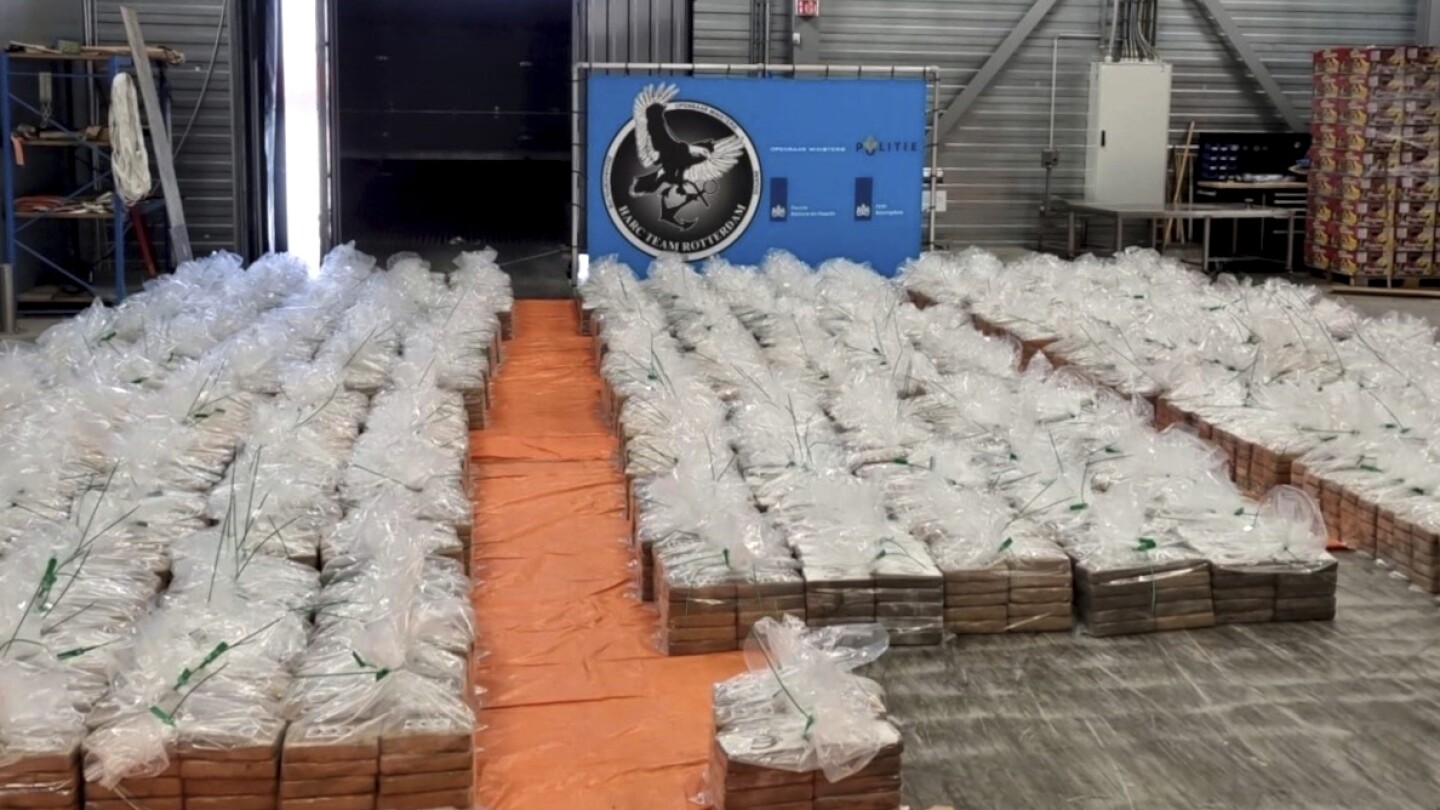THE HAGUE, Netherlands (AP) — Customs authorities in Rotterdam have confiscated more than 8,000 kilograms (17,600 pounds) of cocaine, the largest seizure of the drug in the Netherlands, prosecutors said Thursday.
The drugs had an estimated street value of 600 million euros ($662 million), the Rotterdam Public Prosecution Service said in a statement. No arrests have been made yet in an investigation following the discovery, which was kept secret because of the ongoing probe.
Prosecutors said the drugs, which have been destroyed, were discovered on July 13 hidden in a container of bananas from Ecuador. The announcement came the day after a presidential candidate known for speaking out against drug cartels and corruption in the South American nation was fatally shot at a political rally.
The flourishing drug trade in Europe also is fueling violence and corruption on the continent, the European Union agency that monitors drugs and addiction said in its annual report in June.
It said record amounts of cocaine are being seized in Europe, with 303 tons confiscated by EU member countries in 2021. Rotterdam and the Belgian port of Antwerp are now the main gateways for Latin American cocaine into the continent, it said.
The expansion of the cocaine market has been accompanied by a rise in violence and corruption in the EU, with fierce competition between traffickers leading to a rise in homicides and intimidation.
Among the victims in the Netherlands in recent years were a lawyer representing a witness in the trial of an alleged drug gangster and crime reporter Peter R. de Vries, who was a confidant of the witness.
Unspecified threats to the heir to the Dutch throne, Princess Amalia, forced her last year to abandon student accommodation in Amsterdam and continue her studies from home.
In Ecuador, drug traffickers have begun to use the country’s coastal ports and have unleashed a wave of violence not seen there in decades as rival gangs battle for control.
Last month, the mayor of the port city of Manta was shot and killed. On July 26, President Guillermo Lasso declared a state of emergency covering two provinces and the country’s prison system in an effort to stem the violence.

